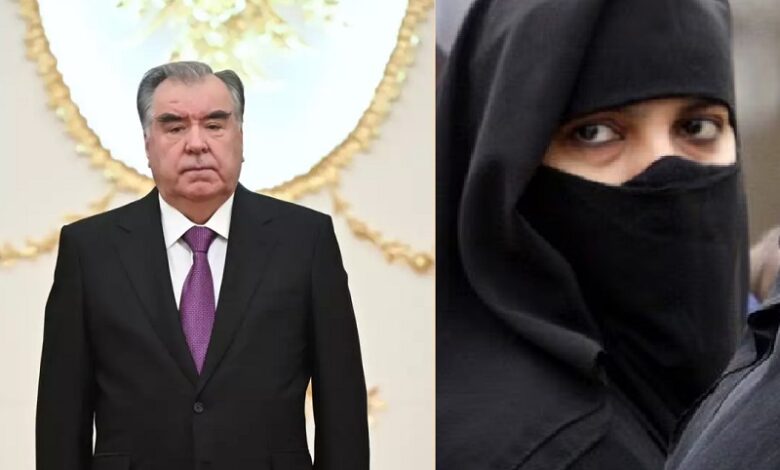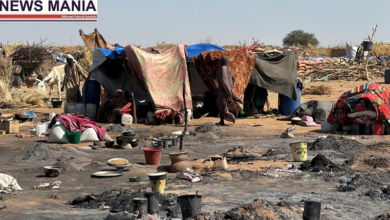Tajikistan Bans Hijab and Eid Custom Idi to Promote Secular Identity
President Rahmon intensified this campaign, condemning the hijab as a sign of poor education and incivility.

News Mania Desk/ Agnibeena Ghosh/22nd June 2024
In a significant move, Muslim-majority Tajikistan has banned the hijab, calling it an “alien garment,” and has also prohibited the custom of children seeking money during Eid, known as ‘Idi’. This decision is part of a broader government effort to foster a secular national identity in the Central Asian nation where more than 96% of the approximately 10 million population follow various sects of Islam.
Tajikistan’s President Emomali Rahmon has officially approved the bill to regulate and prohibit the wearing of the hijab, according to the Bishkek-based news agency AKIpress. The new law includes substantial fines for violators, ranging from eight thousand to 65 thousand somoni, which is approximately Rs 60,560 to Rs 5 lakh. Government officials and religious authorities who fail to comply face even steeper fines, up to Rs 5 lakh.
Additionally, President Rahmon has enacted laws to curb ‘overspending’ and the practice of Idi, which is traditionally associated with Eid al-Fitr, Eid al-Adha, and Nowruz festivals. Sulaiman Davlatzoda, head of the Religion Committee, told Tajikistan’s Radio Ozodi that the ban on Idi aims to ensure children’s proper education and safety during Ramadan and Eid al-Adha.
A press release from the Tajik President’s office stated that these measures aim to “protect ancestral values and national culture.” This follows years of an unofficial ban on the hijab, with President Rahmon previously describing it as “foreign clothing” in a March address. The government views the hijab as a threat to Tajikistan’s cultural heritage and a symbol of external influence.
Human rights organizations and Muslim advocacy groups have widely criticized this move, seeing it as an infringement on religious freedoms. However, this step is the latest in a series of actions by the Tajik government to emphasize a secular national identity.
The crackdown on the hijab began as early as 2007 when the Tajik Education Ministry banned both Islamic clothing and Western-style miniskirts for students, a ban that eventually extended to all public institutions. In 2015, President Rahmon intensified this campaign, condemning the hijab as a sign of poor education and incivility.
The government’s initiative to promote the Tajik national dress has included tactics such as automated phone calls encouraging citizens to adopt traditional attire. This ongoing campaign reflects a broader regional trend, as several other Muslim-majority countries like Kosovo, Azerbaijan, Kazakhstan, and Kyrgyzstan have implemented similar bans on the burqa and hijab in public schools, universities, or for government officials.
This latest development in Tajikistan underscores the government’s determination to cultivate a secular national identity and preserve cultural heritage, even at the expense of religious expressions like the hijab. While the move aims to solidify national values, it has sparked significant debate and controversy, highlighting the tension between state policies and religious freedoms in the region.






